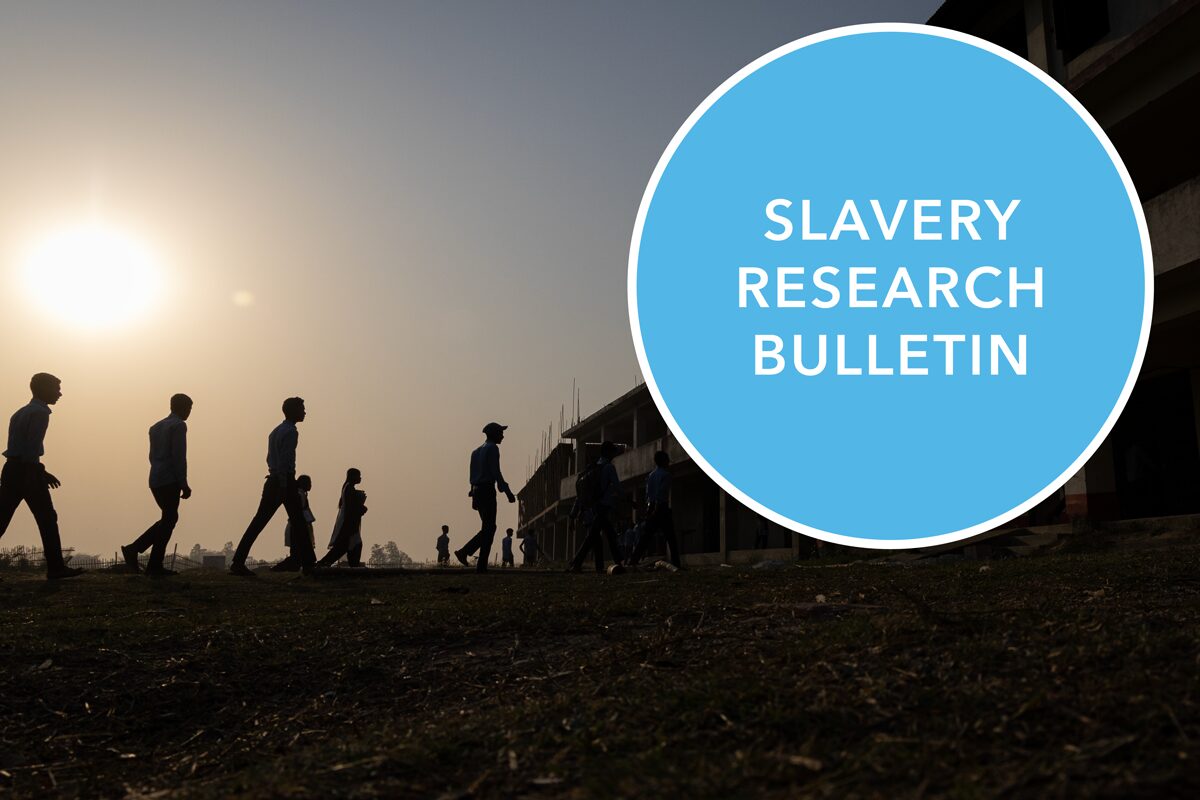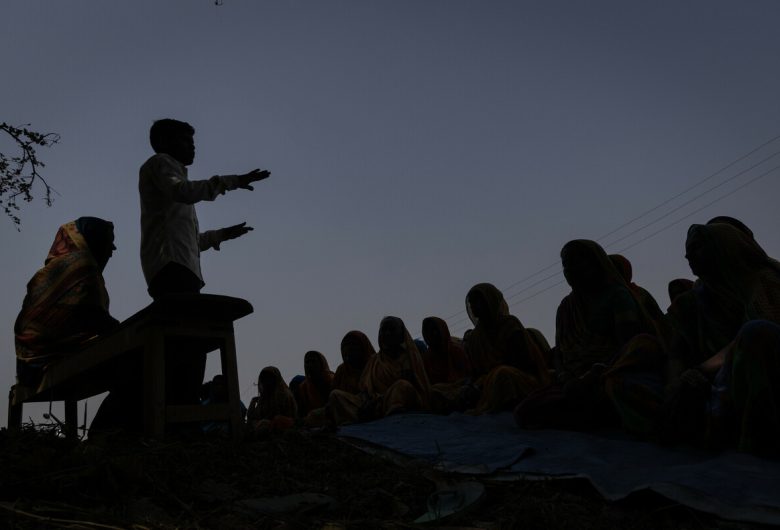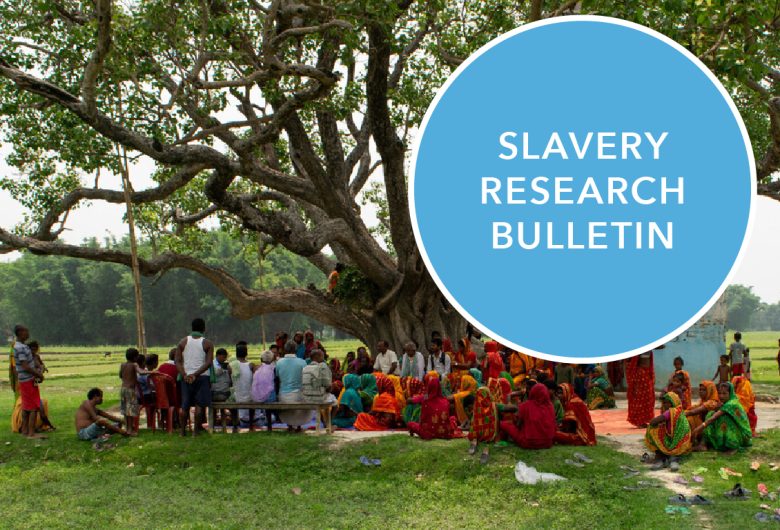Welcome to the Freedom Fund’s monthly bulletin designed to bring you new and compelling research from the global anti-slavery movement.
2023 Trafficking in Persons Report by the U.S. Department of State
The 2023 Trafficking in Persons Report emphasises the importance of partnering with survivors and survivor-led organisations to advance anti-trafficking efforts and minimise harm. Concerns were also raised about unreliable social audits of companies, misconceptions surrounding the trafficking of boys, and trafficking for forced criminal activities in cyber scam operations. The annual assessment of government responses resulted in the upgrading of Ethiopia, Hong Kong and Indonesia to Tier 2, while Brunei, Malaysia and Vietnam were promoted to the Tier 2 Watch List. Conversely, Namibia and Slovenia were downgraded to Tier 2, and Algeria, Chad, and Djibouti were relegated to Tier 3.
Exploitation of Kenyan child in domestic work
The African Institute for Children Studies and The Freedom Fund examine the conditions faced by child domestic workers (CDWs) in Kenya. Based on surveys and discussions with over 500 CDWs, employers and child protection experts, the study found that children as young as seven years old were in domestic work. Many of the CDWs reported exploitative conditions, including physical and emotional abuse disguised as “discipline” and being unable to leave their workplace to seek healthcare when ill or injured (29 percent). It was also common for parents to draw their children’s salary in advance from the employer, locking the child into bonded labour.
Poor reporting of ethical practices in violence research
A systematic review led by the University of North Carolina at Chapel Hill assesses the ethical protocols among 75 peer-reviewed studies that collected primary data on violence against women and children. The researchers used a 14-item ‘best practice’ checklist and, on average, the studies only adhered to 31 percent of the items. Studies most frequently described the ethical clearance and informed consent process, but were least transparent about referrals for minors in adverse events and soliciting participant feedback. The authors call for the development of standardised ethical procedures for study on violence against women and children.
Modern slavery disclosure by UK companies
Research led by the University of Westminster investigates the correlation between companies’ level of modern slavery disclosure (MSD) and board gender diversity. Based on content analysis of MSD statements from 100 UK-listed companies, the analysis finds a positive and statistically significant link – companies with more females on the board are more transparent about their actions to fight modern slavery. A critical mass of at least four female directors is necessary before any positive impact on MSD can be observed. Despite a gradual improvement in MSD, companies tend to focus more on symbolic actions like policy-setting rather than substantial practices such as due diligence.
“Change” from the perspectives of women workers
The Global Alliance Against Traffic in Women (GAATW) reintroduces its e-magazine, titled “Our Work Our Lives”. This e-magazine emerged from discussions among GAATW members on the organisation of women workers and their perceptions of “change” in their lives. This latest issue showcases women who serve as community organisers and union leaders in Bangladesh, India, Indonesia, Lebanon, Nepal, Sierra Leone, and Sri Lanka, and their endeavours to bring about changes in the workplace.
Read on
The University of Liverpool evaluates how adults with lived experience of modern slavery use and access support services through digital technologies.
The Center for Labor & A Just Economy explores models of worker-driven social responsibility in the dairy, garment, construction and fishing industries.
The Organisation for Economic Cooperation and Development (OECD) updates its guidelines on Responsible Business Conduct, which includes chapters on human rights and labour relations.
Freedom Fund news
The Freedom Fund is making a new round of grants to survivor-led organisations in Nepal under our Survivor Leadership Fund. Apply here by 11 August 2023.
Visit our Newsroom for more updates.
Research library
Visit our Slavery Research Library to access anti-slavery resources from across the globe.
Contact
The Slavery Research Bulletin is produced monthly by the Freedom Fund, a global fund with the sole aim of helping end modern slavery.
Research being featured in this bulletin does not equal endorsement by the Freedom Fund.
Click here to sign up to the Slavery Research Bulletin mailing list.
Photo credit: Filmatory Nepal / The Freedom Fund



